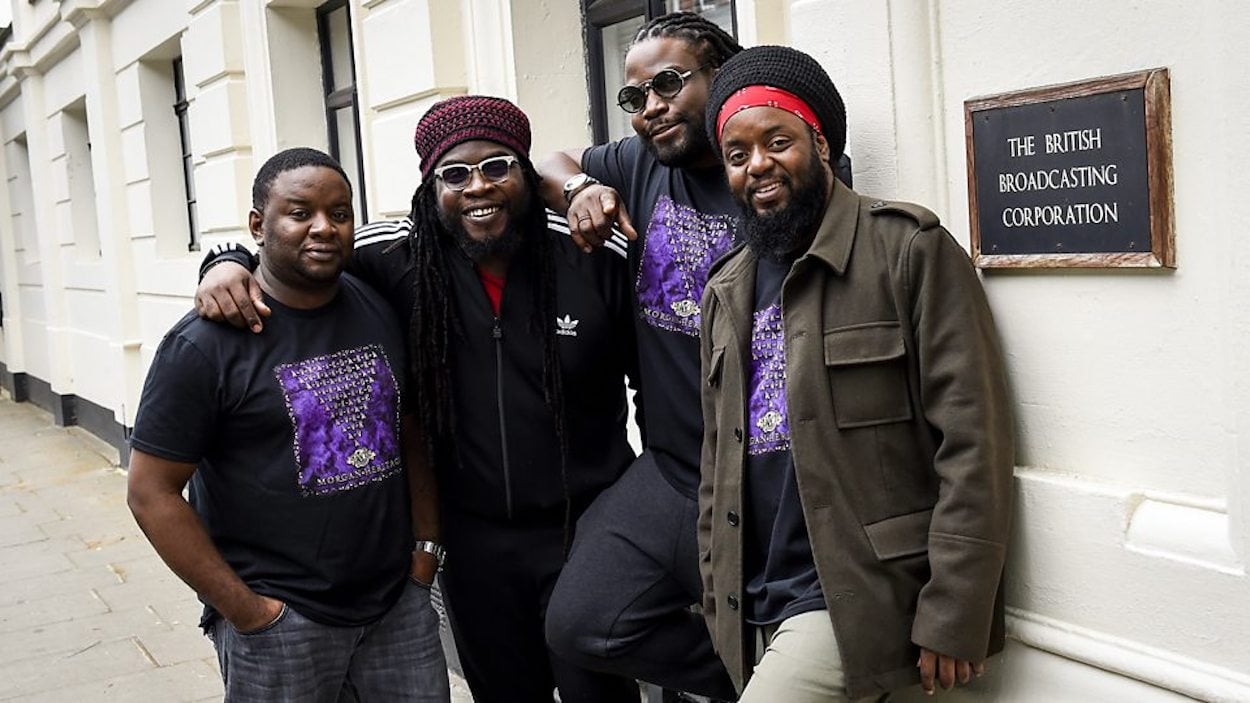Morgan Heritage says its time for reggae music to embrace NFT.
To stay alive in the music industry, you have to be both talented and innovative. This could be how an artist approaches the production of their music or how they approach finances. One of the directions that the music industry seems to be heading towards is digital currency, and lately, all the buzz has been about non-fungible tokens or NFTs.
Morgan Heritage may have just become the first reggae band to enter the new digital realm. They recently revealed that their NFT’s for “Light It Up,” which features Norwegian singer PelleK, has already sold out. NFTs are relatively new and in the simplest explanation, is a unit of data stored on a digital ledger, called a blockchain, that certifies a digital asset to be unique and therefore not interchangeable. The ownership rights are different from copyright.
The two-time Grammy Award-winning reggae group spoke with the Jamaica Gleaner about their decision to embrace the new trend and how they were able to join the digital currency world. They released three songs as limited-edition NFTs in partnership with Bondly Finance. One of those songs is new for the NFT collection, while the others were digitally remastered from their catalog. The latter mentioned songs will be featured on their upcoming album, Legacy.
The first track, “Light It Up,” was made available on April 17 and was sold out in a few hours. That sale brought in a total of 175 NFTs. Memmalatel ‘Mr Mojo’ Morgan told the Gleaner that the sale was historic. “It is historic for a reggae group to do this. Some individuals, whether it be recording artistes or those in pop culture, put up NFTs for sale and end up only selling one; we sold over 200,” he added.
The vocalist and percussionist of the group explained that he was exposed to blockchain technology through a friend. After that, he did his own research and realized that it was worth investing in. He added that the way he saw it was that NFTs were a new form of digital art, which could gain significant value on the resale market.
“When there was an NFT boom with major brands getting into the space, like the NBA, that’s when we knew it was a big shift. As the group understood more and saw that NFTs were a viable opportunity, for about six months we reached out to several companies. We had to make sure reggae was there on a major level,” he continued.
He warned, however, that this new realm of finance may be more suitable to artists who already have a significant fanbase. Mr. Mojo also shared that the band was lucky to be able to partner with Bondly, who he described as a leader in the cryptocurrency realm. One of the most successful artists with NFTs so far is rapper Tory Lanez, who, through a partnership with a blockchain company, was able to generate 450 songs NFTs. He created history by selling it all within two minutes of release. That deal was worth about US$500,000.
While many artists are looking towards NFTs, not all have enough fans or recognition to make it work for them, which is why he believes that their success so far is a great leap for reggae artists.
“That’s why it was monumental for a reggae group to be able to do that, that didn’t have any mainstream success; if you look at it, our success has been through grinding and touring.”
This is another push in the band’s desire to own more of their music. He revealed that they recently secured a deal to own more of their catalog from the family-owned record label, CTBC Music Group,
“Instead of releasing new music, we acquired around 80 per cent of our catalogue, which is unheard of in our genre … this was achieved during the pandemic. To own that much of your catalogue is rarely seen in our genre,” he said. They are the first reggae group to work with
Bondly Finance and they are hoping that other established reggae artists will soon come on board.
He also reasoned that it was not so much about the money aspect of it but rather embracing new ways of getting music out to the world. “We wanted to create a reggae invasion on the blockchain on Saturday, and that’s the statement we are trying to make. We want ‘legacy artistes’ to now come through the door and do what Morgan Heritage has done, and have the same success,” Mr. Mojo said.
He added: “As a creative person, there is an opportunity to now release projects on blockchain that can be sold for an amount to remake the actual investment and at the same time introduce the music to a whole new community of collectors who can acquire, trade and resell NFTs through the platform,” he said.
Too many artists are dependent on the old ways of making money in the music business and have to wait very long before they see any profit, he continued. The Legacy album is expected on May 28, and each of the NFTs will give exclusive access to unreleased music and ownership. Those who secure NFTs will have a chance to hear the new and remastered music before the rest of the world.
